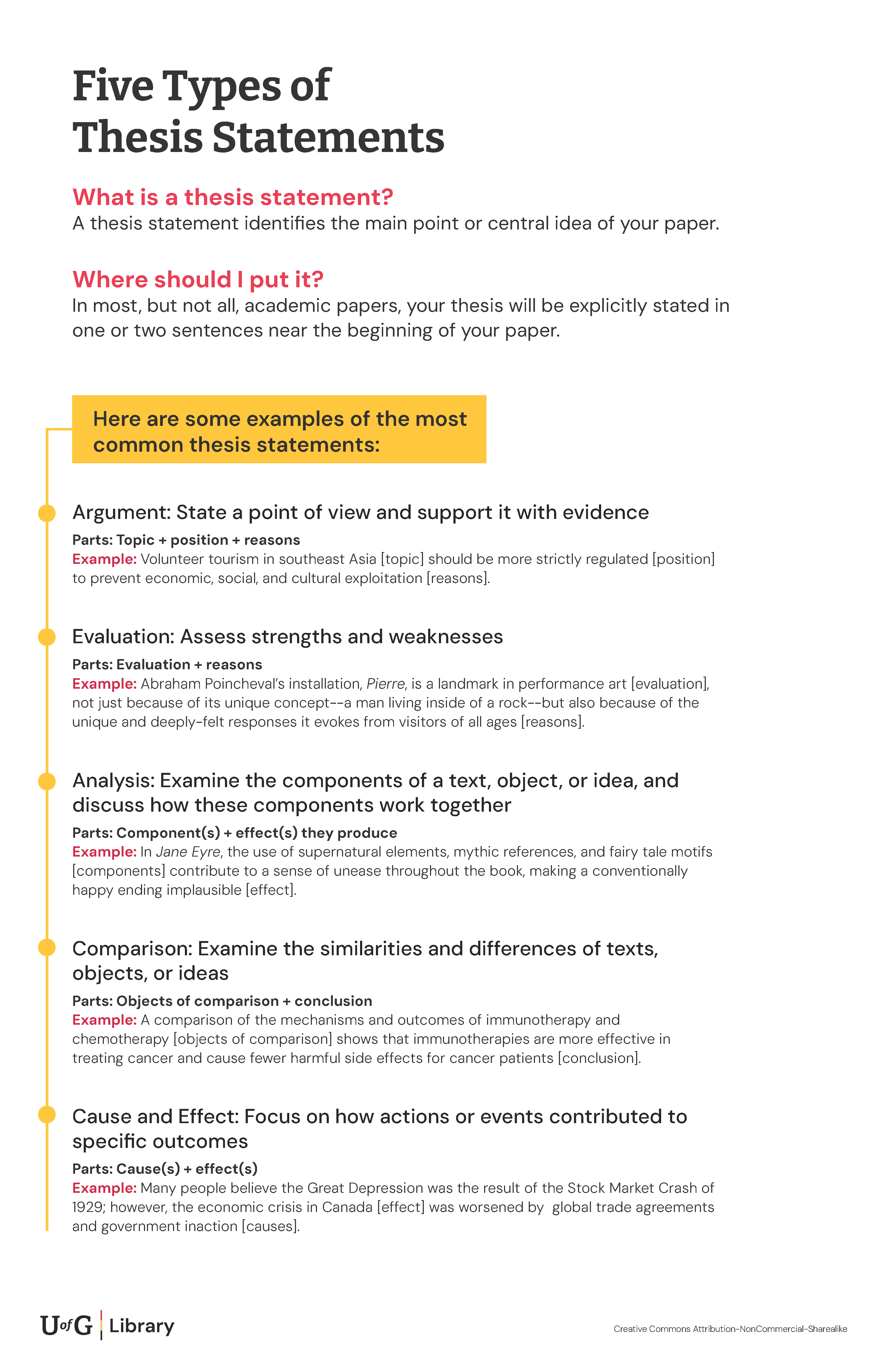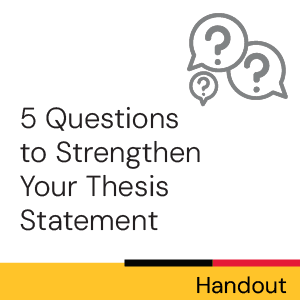Time commitment
Less than 2 minutes
Description
This brief handout provides examples of effective thesis statements to foreground arguments, evaluations, analyses, comparisons, and causes and effects.
Infographic
Transcript
What is a thesis statement?
A thesis statement identifies the main point or central idea of your paper.
Where should I put it?
In most, but not all, academic papers, your thesis will be explicitly stated in one or two sentences near the beginning of your paper.
Here are some examples of the most common thesis statements.
Argument: State a point of view and support it with evidence
Parts: Topic + position + reasons.
Example: Volunteer tourism in southeast Asia [topic] should be more strictly regulated [position] to prevent economic, social, and cultural exploitation [reasons].
Evaluation: Assess strengths and weaknesses
Parts: Evaluation + reasons.
Example: Abraham Poincheval’s installation, Pierre, is a landmark in performance art [evaluation], not just because of its unique concept--a man living inside of a rock--but also because of the unique and deeply-felt responses it evokes from visitors of all ages [reasons].
Analysis: Examine the components of a text, object, or idea, and discuss how these components work together
Parts: Component(s) + effect(s) they produce.
Example: In Jane Eyre, the use of supernatural elements, mythic references, and fairy tale motifs [components] contribute to a sense of unease throughout the book, making a conventionally happy ending implausible [effect].
Comparison: Examine the similarities and differences of texts, objects, or ideas
Parts: Objects of comparison + conclusion.
Example: A comparison of the mechanisms and outcomes of immunotherapy and chemotherapy [objects of comparison] shows that immunotherapies are more effective in treating cancer and cause fewer harmful side effects for cancer patients [conclusion].
Cause and Effect: Focus on how actions or events contributed to specific outcomes
Parts: Cause(s) + effect(s).
Example: Many people believe the Great Depression was the result of the Stock Market Crash of 1929; however, the economic crisis in Canada [effect] was worsened by global trade agreements and government inaction [causes].
License

This work is licensed under a Creative Commons Attribution-NonCommercial-ShareAlike 4.0 International License.


